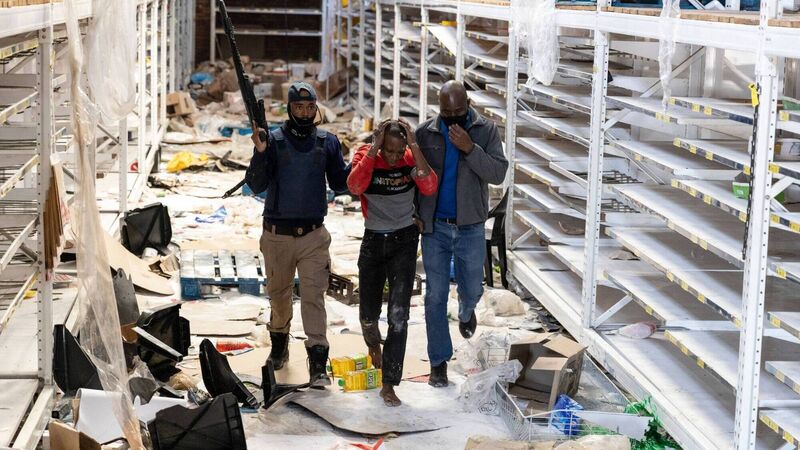Donal Lenihan: Dreams of a Rainbow Nation are more distant than ever

South African Police Services members arrest a looter at the Gold Spot Shopping Centre in Vosloorus, south-east of Johannesburg, last month. Picture: Guillem Sartorio
Try from €1.50 / week
SUBSCRIBE
South African Police Services members arrest a looter at the Gold Spot Shopping Centre in Vosloorus, south-east of Johannesburg, last month. Picture: Guillem Sartorio
The stunning beauty of this conflicted country serves to camouflage a nation on the brink of anarchy. It is winter here in Cape Town but temperatures hit 24C last week.
With the cool Atlantic breeze blowing, the beautiful walk from the waterfront to Mouille Point was awash with activity. It is all very idyllic until you see the number of people sleeping rough on the beachfront and scattered around the many parks and playgrounds that adorn Green Point.
Already a subscriber? Sign in
You have reached your article limit.
Annual €130 €80
Best value
Monthly €12€6 / month
Introductory offers for new customers. Annual billed once for first year. Renews at €130. Monthly initial discount (first 3 months) billed monthly, then €12 a month. Ts&Cs apply.
Newsletter
Latest news from the world of sport, along with the best in opinion from our outstanding team of sports writers. and reporters
Friday, February 13, 2026 - 10:00 PM
Friday, February 13, 2026 - 4:00 PM
Friday, February 13, 2026 - 8:00 PM

Select your favourite newsletters and get the best of Irish Examiner delivered to your inbox
© Examiner Echo Group Limited